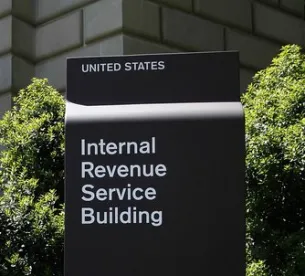On Tuesday, September 4th, the House and Senate returned to Washington after their respective hiatuses. Upon their return, the Republicans have two key priorities before the mid-term election: to avoid a government shutdown on September 30th and confirm Judge Kavanaugh’s nomination to the Supreme Court. At the same time, there continues to be strong support from Republicans in the House and Senate for moving additional tax legislation and encouraging the Internal Revenue Service (IRS) and the Treasury Department to issue the guidance necessary to fully implement the tax reform legislation that was passed in December 2017.
To this end, the Republican-led Congress is looking at five tax-related legislative issues:
-
Tax reform 2.0 (mainly a House effort);
-
Technical corrections (House, Senate and Treasury);
-
Tax extenders (a narrow list in the House and a broad list in the Senate);
-
Additional international tax legislation; and
-
IRS reforms.
The Treasury Department and IRS are focused on providing guidance under the 72 grants of new regulatory authority that were included in the tax reform legislation.
On a positive note for implementation of the new tax law and tax compliance, the Senate approved the nomination of Charles Rettig to be the IRS Commissioner with a bipartisan vote of 64-33 earlier this month. Mr. Rettig will be the first tax professional to lead the agency since 2002. He is expected to be sworn in and begin work on Monday, October 1st. The only other IRS nominee, Michael Desmond who is up for the position of IRS Chief Counsel, has been approved by the Senate Finance Committee and is awaiting a vote by the full Senate.
Tax Reform 2.0
Earlier this month, House Ways and Means Committee Chairman Kevin Brady (R-TX) released the legislative language for the package of three bills in the House Tax Reform 2.0 plan: making the individual/small business tax changes permanent, expanding retirement/savings incentives, and providing new incentives for innovation. On Thursday, September 13th, Chairman Brady and the Ways and Means Committee held a markup of the package of bills.
The first bill (H.R. 6760—Protecting Family and Small Business Tax Cuts Act of 2018) makes permanent the lower tax rates on individuals, the higher standard deduction, the cap on the deduction for state and local taxes, the new limits on the mortgage interest deduction, and the 20% deduction for pass-through business income. The second bill (H.R. 6757—Family Savings Act of 2018) expands and preserves retirement savings vehicles and expands universal savings accounts, Section 529 plans, and penalty free withdrawals. The third bill (H.R. 6756—American Innovation Act of 2018) expands and preserves deductions for startup expenses of new companies. All three bills were approved by the Ways and Means Committee, and the House Republican leadership plans to hold floor votes on these bills late in the week of September 24th.
It is important to note that Senate Republican leadership has no plans to consider the Tax Reform 2.0 package, since they would need support from Democrats to reach the 60 votes required to approve the package or any piece of the package. As a result, it appears the package is mostly a symbolic effort to remind voters of Republicans' commitment to cutting taxes ahead of the November elections. There is a possibility that the retirement and other savings portion of the package could have bipartisan support and be considered by the Senate after the November elections.
Technical Corrections
Since early this year, the bipartisan staff of the House Ways and Means Committee and Senate Finance Committee, the staff of the Joint Committee on Taxation (JCT), and IRS and Treasury Department staff have been meeting with interested parties on technical issues in the statutory language of the tax reform legislation enacted in December 2017. These technical issues may be addressed in one of four ways – the JCT Bluebook explanation of the tax reform legislation, administrative guidance from IRS and Treasury Department, a technical corrections package, and other tax legislation. Tax provisions included in a technical corrections package are supposed to address drafting errors where the statutory language does not agree with the legislative intent of Congress. For a correction to be included in the package, the staffs from all five tax policy and administrative groups have to agree that it is a technical correction.
House and Senate leadership are encouraging companies to work with the Treasury Department as much as possible to solve problems with the tax reform legislation, as the opportunity for Congressional fixes will be limited. The assumption is that there will be little incentive for Democrats to help solve the tax technical corrections issues. Thus, round one of any fixes will come at a big cost (via negotiation), and they will be limited to the most necessary technical fixes.
Tax Extenders
House Republican tax writers continue to work on developing a short list of expired/expiring tax extender provisions to make permanent. At the same time, both Republican and Democrat members of the Senate Finance Committee are very interested in working on a one- or two-year extension of a package of expired tax provisions to be considered before the end of this year or, at the very latest, in early January. While the House has less of an appetite for extenders, the strong support for these issues from a bipartisan group of Senators makes it likely that a package could come together at the very last minute after the mid-term election in November or in January.
International Tax Legislation
Many members of Congress are very concerned about the implementation of two new international tax provisions—the new tax on global intangible low-tax income (GILTI) and the new base erosion and anti-abuse tax (BEAT). On September 13th, the Treasury Department and IRS released the proposed GILTI regulations to provide clarity on computing global intangible low-taxed income. In the agency press release, Treasury Secretary Mnuchin said these regulations “mark an important step towards modernizing the U.S. tax system as we shift from a worldwide system toward a territorial system.” Congress and multi-national businesses will be carefully reviewing the regulations to determine if there are any remaining issues that need to be addressed through legislation. The Treasury Department and IRS continues to work on the regulations to implement the BEAT with the hope of having proposed regulations ready to be released by November or early December. Again, Congress and multi-national businesses will need to thoroughly review these regulations to determine if there are remaining issues with the BEAT that need to be addressed through legislation.
IRS Reforms
The House and Senate have also been considering legislation to improve and reform the IRS. The House approved three reform bills on April 18th to commemorate “Tax Day.” Senate Finance Committee Chairman Orrin Hatch (R-UT) and Ranking Member Ron Wyden (D-OR) introduced reform legislation in July and Finance Committee members Senators Rob Portman (R-OH) and Ben Cardin (D-MD) introduced IRS reform legislation in late July. While each of these bills address different reform issues, Congress is trying to improve taxpayer rights and protections, IRS information technology, low-income taxpayer assistance, whistleblower protections, and laws governing IRS employees; make e-filing mandatory for exempt organizations; modify the appeals process; and thwart identity theft and tax refund fraud. While a consensus package has not yet been developed, some form of an IRS reform package will likely be included in an end-of-the-year tax package.
Treasury/IRS Regulatory Projects
Before the Treasury Department and the IRS could begin working through the regulations that must be published to implement the 2017 tax reform legislation, they had to negotiate a new agreement on the tax regulation review process with the Office of Information and Regulatory Affairs (OIRA) within of the Office Management and Budget. Under this agreement, OIRA will review tax regulations when the new regulation could create a serious inconsistency or otherwise interfere with an action planned by another agency, raise novel legal or policy issues, or have an annual non-revenue effect on the economy of $100 million or more. OIRA will generally have 45 days to review regulations, with an expedited 10-day review period available when requested for some rules related to the 2017 tax reform legislation. So far, Treasury has finalized four sets of proposed regulations on tax reform issues—the bonus depreciation rules under §168(k), the pass-through deduction under §199A, the transition tax under §965, and the tax on GILTI.
Conclusion
The Congressional elections on November 6th will have a large impact on what happens with tax legislation during the congressional session after the elections and the new Congress in 2019. There is the distinct possibility that the Democrats will win a majority in the House of Representatives in November which will influence what legislation may be considered after the elections. In addition, the need for 60 votes to approve any tax legislation in the Senate will require that any tax legislation have bipartisan support to get through the Senate. As a result, the business community should be focused on the outcome of the elections and how they can build bipartisan support for any tax legislation they would like to have enacted before the end of the year.




 />i
/>i

